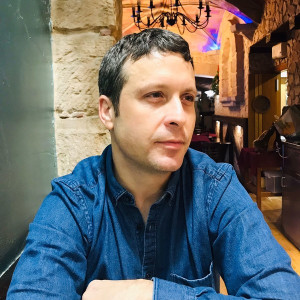Este verbo es uno de los que más utilizamos en nuestro día a día, ya que nos sirve para hablar de un estado o situación de algo o alguien, así como para describir cosas. En pasado simple del verb to be es was o were, dependiendo del sujeto de la oración.

Formas de usar el pasado simple del verbo to be:
Afirmativo
| I was |
| You were |
| He was |
| She was |
| It was |
| We were |
| You were |
| They were |
La forma afirmativa del pasado no se puede contraer.
Ejemplos
| I was sleepy | Estaba adormilado |
| She was wrong | Estaba equivocada |
| We were happy | Éramos felices |
| They were teachers | Eran profesores |
Negativo
Sujeto + was/were + not + ...
| Forma larga | Forma corta |
|---|---|
| I was not | I wasn't |
| You were not | You weren't |
| He was not | He wasn't |
| She was not | She wasn't |
| It was not | It wasn't |
| We were not | We weren't |
| You were not | You weren't |
| They were not | They weren't |
La forma negativa se puede contraer.
Ejemplos
| I wasn't married | No estaba casada |
| It was not windy | No hacía viento |
| We were not young | No éramos jóvenes |
| You weren't our lawyers | No érais nuestros abogados |
Interrogativo
Was/Were + Sujeto + ...?
| Afirmativo | Negativo | |
|---|---|---|
| Was I...? | Was I not...? | |
| Were you...? | Were you not...? | Weren't you...? |
| Was he...? | Was he not...? | Wasn't he...? |
| Was she...? | Was she not...? | Wasn't she...? |
| Was it...? | Was it not...? | Wasn't it...? |
| Were we...? | Were we not...? | Weren't we...? |
| Were you...? | Were you not...? | Weren't you...? |
| Were they...? | Were they not...? | Weren't they...? |
Ejemplos
| Was I late? | ¿Llegaba tarde? |
| Weren't you 18 years old? | ¿No tenías 18 años? |
| Why wasn't she here? | ¿Por qué no estaba aquí? |
| Were they not afraid? | ¿No tenían miedo? |
Para los demás tiempos verbales 'to be' se comporta como un verbo ordinario.
I have been a good friend (Present Perfect).
I am being very patient (Present continuous).
I will be your wife (Future).
I can be your friend (con un verbo modal).
Ejercicios del pasado simple de to be
Completa las siguientes oraciones con el pasado simple del verbo to be en forma afirmativa.
They were very happy.
I was very angry.
My friend Tom was in New York last summer.
Completa las siguientes oraciones con la forma contraída del verbo to be en pasado y en forma negativa.
You weren't at school last Monday.
He wasn't fifteen years old.
Our houses weren't very old.
interrogativa afirmativa.
Was she a beatiful girl?
Where was my car?
Completa las siguientes oraciones con la forma contraída del verbo to be en pasado negativa, interrogativa.
Weren't we here last holidays?
Wasn't it a nice present?
This neighbourhood wasn't safe some years ago.
Paula and her sister weren't at home last night.
Completa las siguientes oraciones con la forma correcta del verb to be en pasado.
The teacher was waiting for her stuents.
Our house in the beach was the biggest in the street.
My father and I were in the garden when my sister arrived.
¿Buscas clases de ingles en Madrid?













Hola la primera esta mal.
Ya se ha corregido el error, muchas gracias por comentar.
Por que no puedo abreviar las negaciones ?
Hemos revisado los ejercicios y es posible ingresar la forma abreviada de las negaciones. A veces ocurre en algunos computadores que no tienen apostrofe o lo reconoce como tilde, tal vez es eso lo que impide ingresar la forma abreviada.
Muchas gracias por comentar.
¡Hola! Nuestro artículo se enfoca en el uso del pasado simple del verbo “to be” en inglés, incluyendo formas afirmativas, negativas e interrogativas. No hay ninguna mención del verbo “to have” ni del pasado simple de “to have”.
En base a esta observación, parece que te has confundido con otro material. El artículo se centra exclusivamente en el verbo “to be” en pasado simple y no aborda el uso de “to have”, ni como verbo principal ni como auxiliar.
Hola, creo que el error que he encontrado es en la parte teórica del negativo. Ahí aparecen dos reglas de uso “Sujeto + did + not + have + …./ Sujeto + had + not + ….” si bien la primera hace referencia al título del contenido “pasado simple del VERBO TO HAVE” considero que la segunda regla no se debería agregar al tema ya que hace referencia al “AUXILIAR HAVE” ya que son dos tiempos diferente y podrían causar confusión. (Lo mismo va para la parte interrogativa).